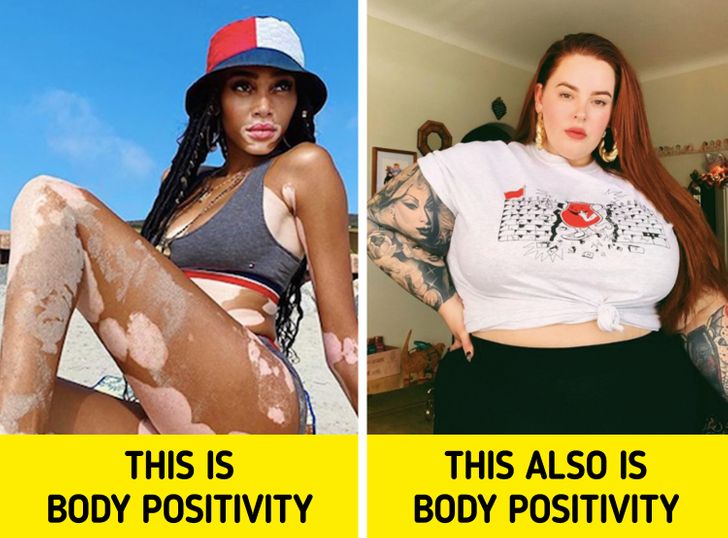Around 91% of American women are not satisfied with the shape of their bodies, and only 5% actually possess the so-called perfect body shape promoted by the media. Meanwhile, body positivity, the movement intended to promote a positive body image, is often severely criticized in promoting health issues like obesity.
We at Bright Side want to explain to our readers what body positivity actually is, why it is not about boosting health issues, and why it is essential to all of us.
Body positivity, by definition, is about acceptance.
Before we jump right into the discussion, let’s first look at the definitions.
The term — body positivity — itself is defined as “the idea that people should feel happy with and proud of their body, whatever shape or size it is.” The movement in its current state was formed at the beginning of the 2010s. It was a response to the beauty standards that have been shaped by society throughout history and implemented on people, specifically females.
Misunderstandings occur because of the misinterpretation.
The reasonable question is, if body positivity is only about the acceptance of one’s body, why then do many people think it promotes obesity? Well, there’s a reason.
Body positivity, as a movement, is quite new. Hence, it does not have a single, well-established interpretation of its meaning. Different people may interpret it differently. Body positivity may include meanings like “appreciating your body in spite of flaws,” “feeling confident about your body,” and “accepting your body’s shape and size.” And even though all of these definitions have similar roots, there’s still space for misinterpretation.
Body positivity does not promote obesity, but a negative body image does.
Stacy Berman, a Ph.D. in Natural Medicine, suggests that if we do not appreciate different body shapes, we will create a movement opposite to body positivity — “body negativity,” i.e., we will set up and promote a negative body image. Negative body image “is linked to numerous physical and mental issues with women, girls, and teens, including obesity, anorexia, bulimia, depression, increased stress, heart issues, and anxiety,” Berman states.
Knowing that around 91% of American women are not satisfied with their bodies, the consequences of “body negativity” seem very undesirable, to say the least.
Body positivity is not just about weight.
Body positivity does not promote obesity because, along with weight positivity, it normalizes many other features of one’s body. The movement seeks to de-stigmatize various body features that society perceives as unfavorable even though, in reality, they are normal. For instance, scar positivity, whether it is a cesarean scar or a post-surgery scar. And in the last couple of years, acne positivity is becoming more and more popular.
Did you believe body positivity was promoting obesity? Have you changed your mind? Tell us in the comment section below.





إرسال تعليق